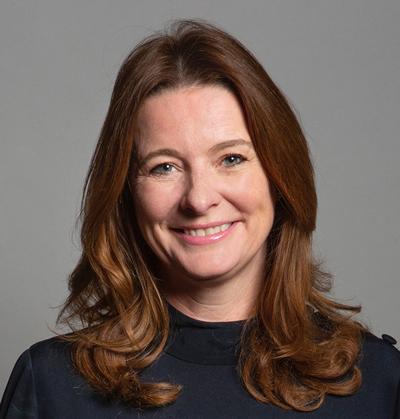England’s secondary school pupils have risen up the international rankings for their attainment in maths, but there has been little comparable improvement in reading and science.
And this year’s landmark Programme for International Student Assessment (PISA) results are also likely to overinflate scores for England as too few schools took part in the study.
The OECD has today published its PISA league tables, comparing countries across the globe on their youngsters’ attainment in maths, reading and science.
The government has previously said that this year’s PISA results should be used to judge the success of former education secretary Michael Gove’s sweeping reforms.
Results for most countries fell after the Covid pandemic, but England’s held up better in maths – seeing the country rise to 11th in the world out of 81 that took part.
However attainment in reading and science remained relatively unchanged compared to other countries.
But the country’s performance is also likely overinflated.
Too few students from England took part in the study – meaning the results could be up to eight points too generous, as more higher-performing pupils took part.
This big caveat led to academics urging caution on interpreting the findings.
But education secretary Gillian Keegan said the results are “testament” to “the Government’s unrelenting drive to raise school standards over the past 13 years”.
Here’s your usual trusty Schools Week round up …
1. Rise in maths, little change in English or reading …
The average performance in maths and reading has “significantly declined” across OECD countries since 2018 – revealing the impact of the Covid pandemic.
While England’s performance also “declined significantly”, it remained “significantly above” average in both areas.
In maths, England actually moving from 17th in 2018 to 11th in the new ratings, according to the Department for Education. This is up from 27th in 2009.
England ranked 13th for both reading and science, little change from the 14th and 13th respectively in 2018.
Overall, England’s performance in 2022 was similar to previous PISA cycles between 2006 and 2015.
The country’s scores were, however, “significantly” higher for all subjects in Northern Ireland and Wales, and much higher for both maths and science in Scotland.

2. … but big caveat means England’s scores likely inflated
But there’s an important caveat (one we wanted to make clear straight away).
Around one in three schools and one in four pupils overall refused to take part in the study – meaning that England’s response rate fell below the PISA sample standards.
For England, this meant that “higher performing pupils may be overrepresented” and some results “may therefore be somewhat higher than they might otherwise be”.
England was not alone: other countries including the United States and China fell below the standards. But the OECD makes no adjustments to the scores when such standards are not met.
PISA estimates that this means England’s maths and reading scores could be 7 or 8 points higher than they should be.
This makes quite a difference. For instance, it would knock England into the group currently classed as countries that “scored significantly lower than England” in maths and reading! (although this is obviously not including potential points downgrades for other countries similarly affected).
3. The PISA scores on the doors:
In maths: English pupils’ average score was scored 492, significantly above the 472 OECD average – although lower than the 504 in 2018. Just 8 countries had significantly better scores.
In reading: the average score was 496, significantly above the average of 476 but lower than the 505 in 2018. England’s score was similar to between 2006 and 2015, while the OECD trend average declined.
In science: the average score was 503, significantly higher than the 485 OECD average – and just two points lower than in 2018. However this marks a continued downward trend in science, falling from 512 in 2015.
For context: The mean performance across all OECD countries fell by 10 points in reading and by almost 15 points in maths.
READ: How concerned should we be by England’s declining PISA scores?
4. English pupils are really not happy
Around half of pupils in England (48 per cent) rated their overall life satisfaction as 7 or more (out of 10), compared to 61 per cent across other countries.
This meant English pupils reported statistically significantly lower overall levels of life satisfaction (6.01) than the 6.75 average.
It’s also falling: in 2018, English pupils had an average score of 6.1 – however the fall globally has been bigger, down from 7.
The Education Policy Institute said the UK now has the “second lowest average life satisfaction of 15-year-olds across all OECD countries”.
Pupils who reported being happy with life had the highest average score in maths, significantly higher than others.

5. Staffing shortages a bigger barrier to teaching
Staffing shortages were the top barrier to teaching across the OECD, but England is faring worse.
More than half of pupils (54 per cent) were in schools where headteachers reported a lack of staff was affecting teaching – compared to a 47 per cent OECD average.
The government has missed its secondary teacher recruitment targets for nine of the past ten years. It is also expected to fall short of recruitment for this year, with figures out this week.
However, 80 per cent of pupils were in schools where the headteacher reported that either inadequate or poorly-qualified teaching staff had very little or no impact on teaching.

6. England’s pupils better behaved (but bullied more)
Headteachers were asked how much issues relating to behaviour and attendance affect pupils’ learning – and England scored comparatively highly.
For instance, the biggest issue was pupils not paying attention (66 per cent of heads said it didn’t affect learning), compared to 39 per cent across the OECD.
For other issues such as truancy, pupils not respecting teaching and bullying – England scored better than their global peers.
However, when you asked pupils – around a fifth reported being made fun of at school at least a few times a month, compared to 12 per cent across the OECD. But most pupils (93 per cent) reported feeling safe in their classrooms – the same as the OECD average.

7. Caution over ‘political point-scoring’ claims …
So have Gove’s reforms been successful?
There are lots of positives: England is performing above average – and it has risen up the ranks in recent years.
It also performs *much* better than other UK countries, which have taken different approaches to reform.
However, the fall-out from Covid seems to have impacted the ability of the results to act as an accurate barometer – as most countries, including England, saw their performance drop this year.
Changes could be more down to differences in how countries handled the pandemic.
The issue around the sample size is also really important.
University of Oxford researchers (who published today’s report focusing on England’s scores) concluded that “caution is required when interpreting the analysis” as the sample “may not be entirely representative”.
Geoff Barton, general secretary of the Association of School and College Leaders, added PISA “should not be used for cheap political point-scoring, to justify a narrowing of the curriculum or to denigrate the work of schools in any UK jurisdiction”.
8. … but Keegan links results to ‘unrelenting’ reforms
Despite the caveat, education secretary Gillian Keegan (pictured) said the results are a “testament to our incredible teachers” and “the Government’s unrelenting drive to raise school standards over the past 13 years”.

She pointed to the PIRLs results this year which ranked the country’s primary pupils as fourth best in the world for reading, adding: “England is now firmly cemented as one of the top performing countries for education in the western world.”
However Daniel Kebede, general secretary of the National Education Union, said it “takes a very opportunistic government to present the OECD’s depiction of a global crisis for education as a national success story”.
He added the OECD “really should think again about the way it publishes” results in a “misleading league table form”.















Your thoughts